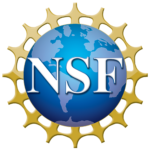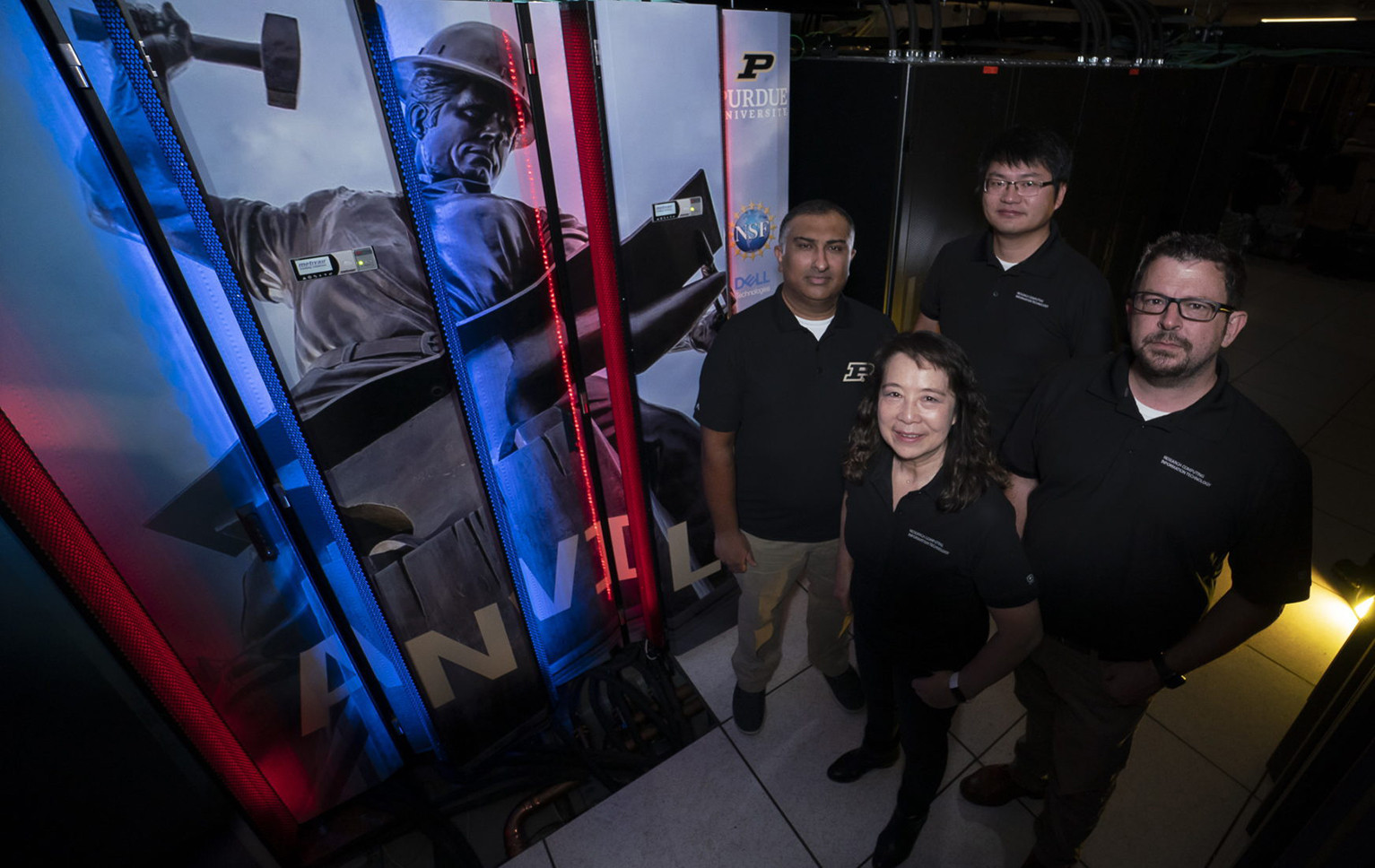With a name like Anvil, you know this is one mighty supercomputer. Purdue’s Rosen Center for Advanced Computing (RCAC) debuted Anvil a little more than a year ago as one of the resources available for allocations in ACCESS. Anvil hit 100% utilization in August last year and has already supported thousands of users.
Researchers have been raving about the speed at which they can complete their research when they have access to supercomputers like Anvil. Richard Wilton, a research scientist at Johns Hopkins University, says, “The team that put Anvil together has realized what researchers are going to be doing over the next few years and what the need is now for high-performance computing.”
Anvil consists of 1,000 nodes with two 64-core third-generation AMD EPYC processors each and will deliver over 1 billion CPU core hours to the Advanced Cyberinfrastructure Coordination Ecosystem: Services and Support (ACCESS) each year. This highly useful resource is a welcome addition to the ACCESS portfolio and will continue to help thousands more researchers each year.
Anvil is also one of the ACCESS resources with Open OnDemand (using Jupyter Notebook) deployed. Anvil began its work under the NSF’s Extreme Science and Engineering Discovery Environment (XSEDE) prior to transitioning to ACCESS. Before the transition, a large group of students part of a data science learning community at Purdue called The Data Mine, were onboarded into the Anvil environment. Due to the simple and intuitive nature of Open OnDemand, all 1,300 students were able to make the switch to the ACCESS interface quickly in a seamless transition.
You can read more about this story here (Published November 23, 2022) Purdue’s Anvil supercomputer accelerating scientific research progress
Project Details
Institution: RCAC (Rosen Center for Advanced Computing)
University: Purdue University
Funding Agency: NSF
Grant Number: Anvil is funded under NSF award No. 2005632
The story featured here, allocated through August 31, 2022, was enabled through Extreme Science and Engineering Discovery Environment (XSEDE) and supported by National Science Foundation grant number #1548562. Projects allocated September 1, 2022 and beyond are enabled by the ACCESS program, which is supported by National Science Foundation grants #2138259, #2138286, #2138307, #2137603, and #2138296.


